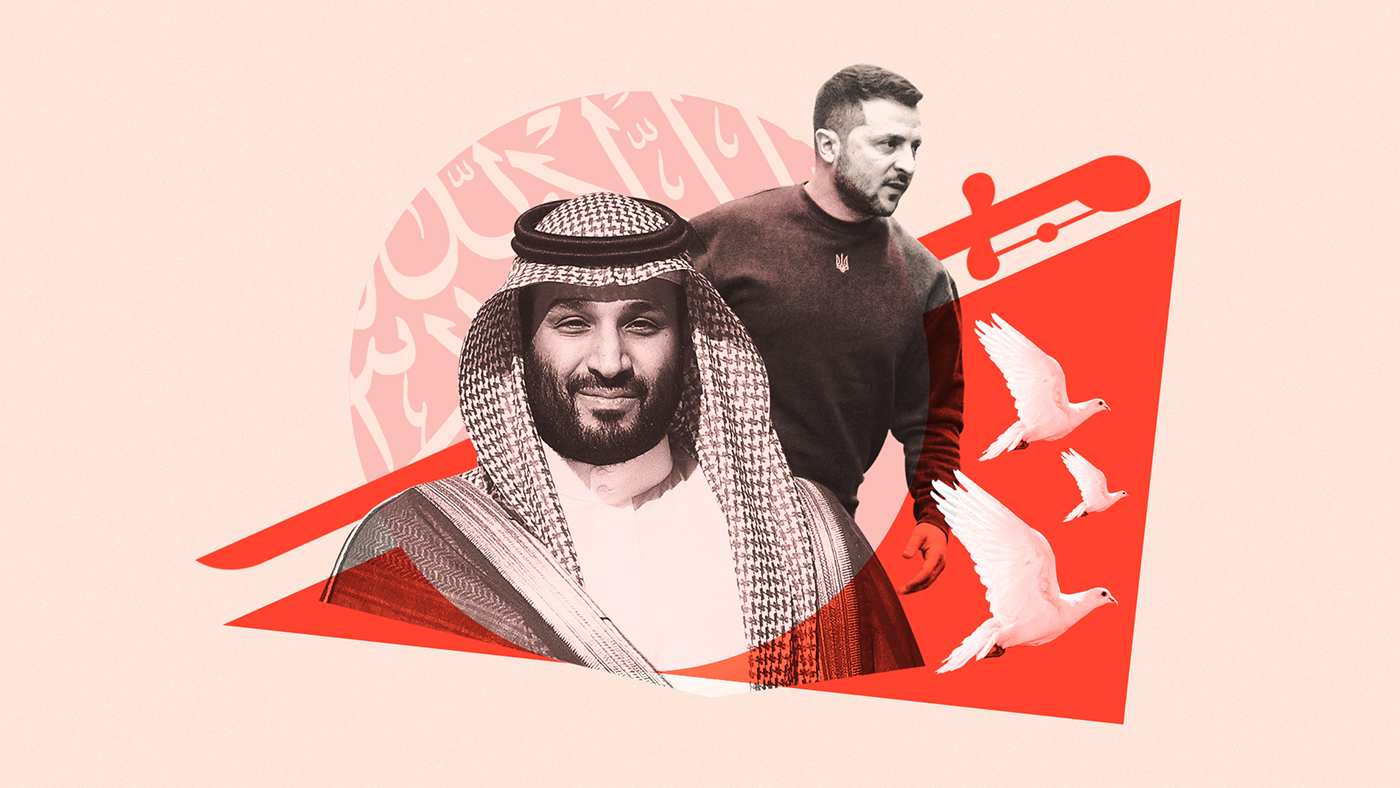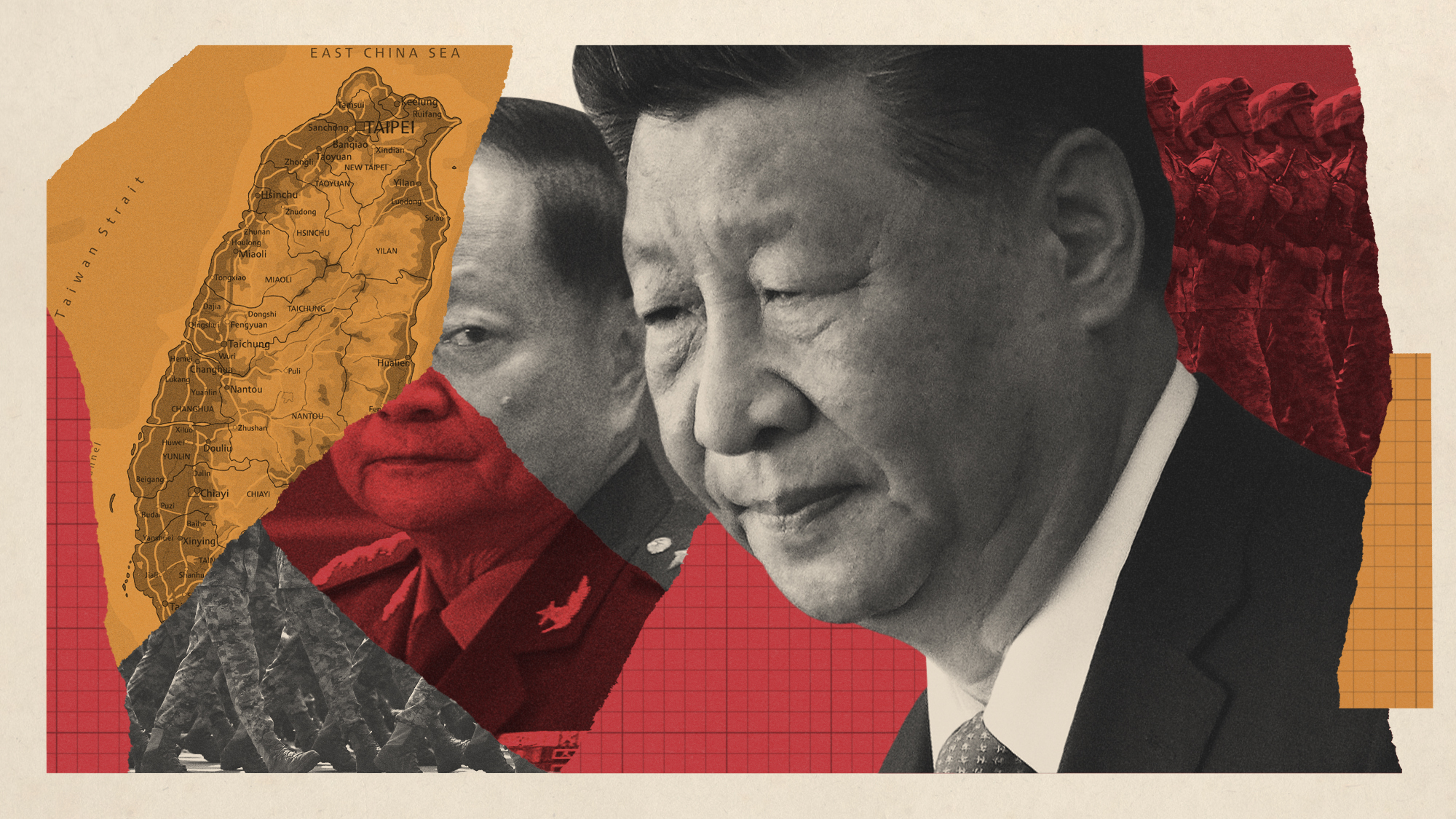Why is Saudi Arabia so keen on hosting a Ukrainian peace summit?
The kingdom is looking beyond Ukraine and Russia, hoping to flex some international muscle of its own


A free daily email with the biggest news stories of the day – and the best features from TheWeek.com
You are now subscribed
Your newsletter sign-up was successful
All eyes will be on Jeddah, Saudi Arabia this weekend, as world leaders from the United States, Europe, South America, and Asia descend on the coastal Red Sea port city for a planned peace summit to discuss Ukrainian President Volodymyr Zelenskyy's proposed 10-point plan to end the ongoing Russian invasion of his country. Speaking on Sunday, Ukrainian official Andriy Yermak confirmed the conclave, calling it a means to "restore lasting and just peace" between Ukraine and Russia, even as fighting between the two nations has intensified in recent days. Unlike a similar conference earlier this summer in Copenhagen, Denmark, the Jeddah summit will be notable not only for who is participating and what is being discussed, but for where it's taking place to begin with.
Although "Arab nations largely have remained neutral," in the ongoing Russian-Ukrainian war, "in part over their military and economic ties to Moscow," Saudi Arabia has slowly begun showing increased involvement in the conflict, including having invited Zelenskyy to address an Arab League summit this past May, Politico reported. "It has kept up close ties with Russia, with which it leads the Opec+ group of oil producers and exporters, but has also sent financial aid to Ukraine," the Foreign Times added, highlighting the work the kingdom has done to facilitate prisoner swaps between the two countries. So what's behind Saudi Arabia's sudden interest in brokering peace between Ukraine and Russia?
What are the commentators saying?
The upcoming summit is "another example of Crown Prince Mohammed bin Salman's efforts to position himself as a global leader with influence beyond his region," The New York Times said, adding that it's not simply about his personal ambitions, but a broader effort to "carve out a role for the kingdom as a mediator" as well. The push comes as Saudi Arabia attempts to shed its reputation as a biased party after the "White House accused it last year of siding with Russia in keeping oil prices high — thus bolstering Moscow's finances," the Wall Street Journal reported. Western nations agreed to hold the talks in Saudi Arabia "partly in hopes of persuading China, which has maintained close ties to Moscow, to participate" as well.
The Week
Escape your echo chamber. Get the facts behind the news, plus analysis from multiple perspectives.

Sign up for The Week's Free Newsletters
From our morning news briefing to a weekly Good News Newsletter, get the best of The Week delivered directly to your inbox.
From our morning news briefing to a weekly Good News Newsletter, get the best of The Week delivered directly to your inbox.
"The kingdom has sought to position itself as a middle power with influence beyond its region, while balancing ties with the US, Russia and China," the Foreign Times agreed. Mediating the upcoming summit would "demonstrate the effectiveness of that approach," one source added.
Nevertheless, with bin Salman's personal fortunes so closely tied to those of his country, it's impossible to fully extricate the two from one another, as "ties remain strained between Riyadh and the West over the 2018 killing and dismemberment of Washington Post columnist Jamal Khashoggi at the Saudi Consulate in Istanbul, which U.S. intelligence agencies assess that Prince Mohammed ordered," Politico said, pointing out the prince's alleged efforts to "reach a détente with Iran and push for a peace in the kingdom's yearslong war in Yemen."
What could happen next?
At the moment, it's unclear how many of the 30-some countries that have reportedly been invited to the summit will actually participate. One country that won't be participating — nor was it invited to in the first place — is Russia itself.
"Russia will keep an eye on this meeting," Kremlin spokesperson Dmitry Peskov told reporters, according to Russia's Tass news agency. "We'd have to fully understand what goals are being set and what the organizers actually plan to talk about."
A free daily email with the biggest news stories of the day – and the best features from TheWeek.com
Among those who have been invited, however, are "senior officials from China, Brazil, South Africa and India" — four of the five BRICS nations (absent Russia) who have recently begun making moves to challenge the U.S. dollar's global monetary hegemony. That effort, Fortune reported, has been "accelerated" by the various Western sanctions on Russia for Ukraine's invasion. Ukraine, crucially, has pushed for "a broadening of sanctions on Moscow," The Wall Street Journal noted, adding that "India, Turkey, Brazil and China have eschewed" the effort. The tension between Ukraine's peace proposal and the group of developing nations has long been a sticking point at various stages of these negotiations. During the previous meeting in Copenhagen, "the developing-country group made it clear they were open to discussing shared principles but wouldn't sign onto Ukraine's plan" outright. Attending the Saudi Arabian summit suggests that those discussions remain ongoing.
Russia, meanwhile, is coming off a massive summit of its own, having just finished hosting representatives from 49 African nations who traveled to Moscow as Putin hopes to assuage their fears that "his war in Ukraine hasn't compromised the Kremlin's ability to provide military and political support to the continent."
Regardless of the outcome of the upcoming Jeddah conference, the fact remains that "The war in Ukraine has been a huge bonanza for the Saudis." Writing in The Washington Post last month, columnist Josh Rogin laid bare an underlying financial reality in which "Saudi state oil company Aramco made a record $161.1 billion in profit last year, up 47 percent from 2021."
"Meanwhile," he pointed out, "Riyadh has given Ukraine a measly $400 million in humanitarian aid."
Rafi Schwartz has worked as a politics writer at The Week since 2022, where he covers elections, Congress and the White House. He was previously a contributing writer with Mic focusing largely on politics, a senior writer with Splinter News, a staff writer for Fusion's news lab, and the managing editor of Heeb Magazine, a Jewish life and culture publication. Rafi's work has appeared in Rolling Stone, GOOD and The Forward, among others.
-
 Why is the Trump administration talking about ‘Western civilization’?
Why is the Trump administration talking about ‘Western civilization’?Talking Points Rubio says Europe, US bonded by religion and ancestry
-
 Quentin Deranque: a student’s death energizes the French far right
Quentin Deranque: a student’s death energizes the French far rightIN THE SPOTLIGHT Reactions to the violent killing of an ultraconservative activist offer a glimpse at the culture wars roiling France ahead of next year’s elections
-
 Secured vs. unsecured loans: how do they differ and which is better?
Secured vs. unsecured loans: how do they differ and which is better?the explainer They are distinguished by the level of risk and the inclusion of collateral
-
 ‘The forces he united still shape the Democratic Party’
‘The forces he united still shape the Democratic Party’Instant Opinion Opinion, comment and editorials of the day
-
 The UK expands its Hong Kong visa scheme
The UK expands its Hong Kong visa schemeThe Explainer Around 26,000 additional arrivals expected in the UK as government widens eligibility in response to crackdown on rights in former colony
-
 ‘Hong Kong is stable because it has been muzzled’
‘Hong Kong is stable because it has been muzzled’Instant Opinion Opinion, comment and editorials of the day
-
 What do Xi’s military purges mean for Taiwan?
What do Xi’s military purges mean for Taiwan?Today’s Big Question Analysts say China’s leader is still focused on reunification
-
 What is at stake for Starmer in China?
What is at stake for Starmer in China?Today’s Big Question The British PM will have to ‘play it tough’ to achieve ‘substantive’ outcomes, while China looks to draw Britain away from US influence
-
 ‘It’s good for the animals, their humans — and the veterinarians themselves’
‘It’s good for the animals, their humans — and the veterinarians themselves’Instant Opinion Opinion, comment and editorials of the day
-
 What is China doing in Latin America?
What is China doing in Latin America?Today’s Big Question Beijing offers itself as an alternative to US dominance
-
 Trump considers giving Ukraine a security guarantee
Trump considers giving Ukraine a security guaranteeTalking Points Zelenskyy says it is a requirement for peace. Will Putin go along?
